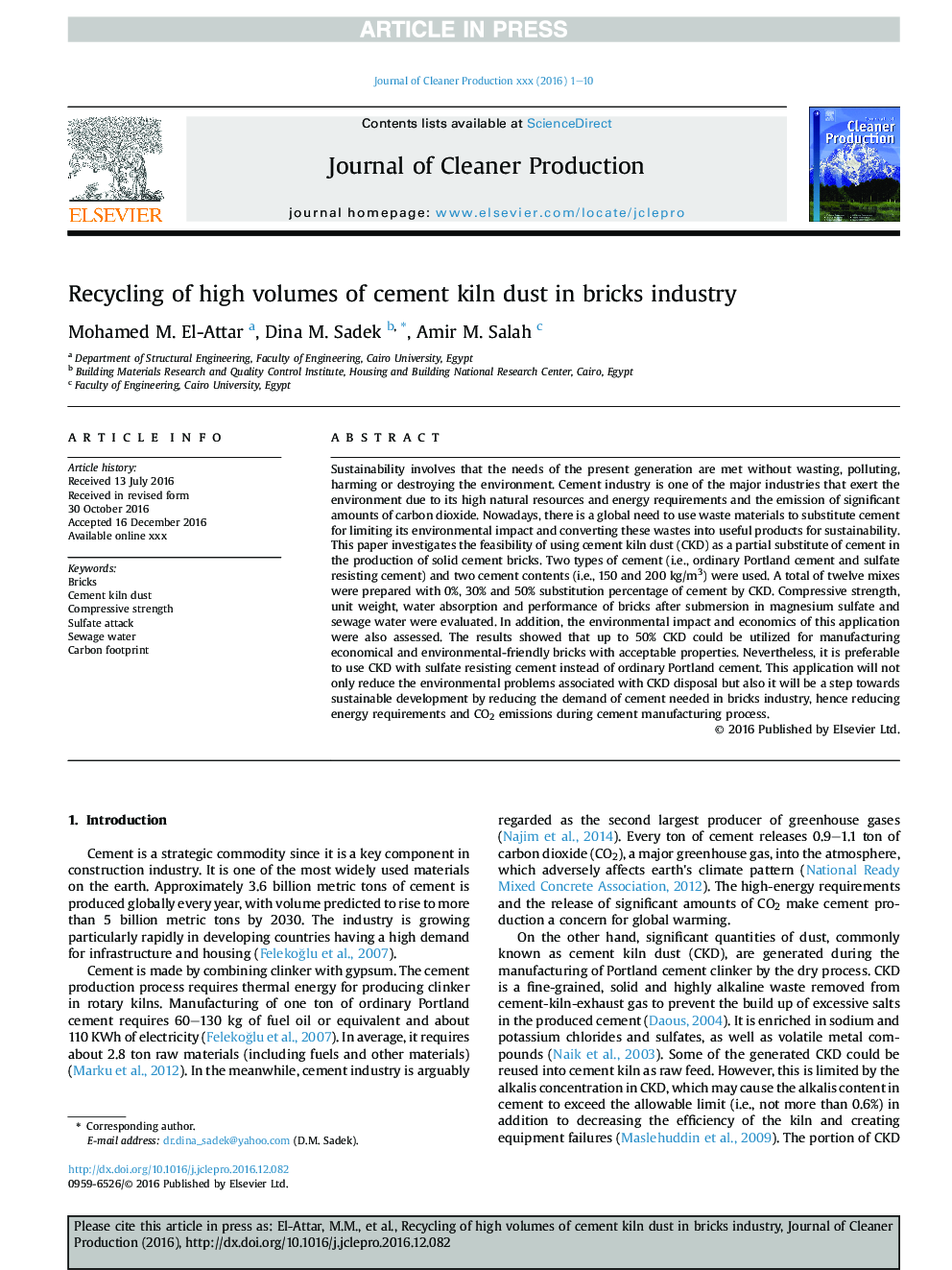| Article ID | Journal | Published Year | Pages | File Type |
|---|---|---|---|---|
| 5481100 | Journal of Cleaner Production | 2017 | 10 Pages |
Abstract
Sustainability involves that the needs of the present generation are met without wasting, polluting, harming or destroying the environment. Cement industry is one of the major industries that exert the environment due to its high natural resources and energy requirements and the emission of significant amounts of carbon dioxide. Nowadays, there is a global need to use waste materials to substitute cement for limiting its environmental impact and converting these wastes into useful products for sustainability. This paper investigates the feasibility of using cement kiln dust (CKD) as a partial substitute of cement in the production of solid cement bricks. Two types of cement (i.e., ordinary Portland cement and sulfate resisting cement) and two cement contents (i.e., 150 and 200Â kg/m3) were used. A total of twelve mixes were prepared with 0%, 30% and 50% substitution percentage of cement by CKD. Compressive strength, unit weight, water absorption and performance of bricks after submersion in magnesium sulfate and sewage water were evaluated. In addition, the environmental impact and economics of this application were also assessed. The results showed that up to 50% CKD could be utilized for manufacturing economical and environmental-friendly bricks with acceptable properties. Nevertheless, it is preferable to use CKD with sulfate resisting cement instead of ordinary Portland cement. This application will not only reduce the environmental problems associated with CKD disposal but also it will be a step towards sustainable development by reducing the demand of cement needed in bricks industry, hence reducing energy requirements and CO2 emissions during cement manufacturing process.
Related Topics
Physical Sciences and Engineering
Energy
Renewable Energy, Sustainability and the Environment
Authors
Mohamed M. El-Attar, Dina M. Sadek, Amir M. Salah,
